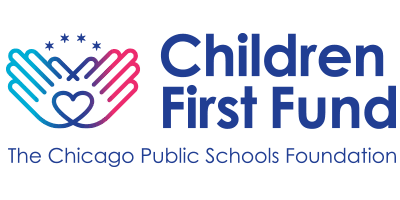Targeted Student Supports

Every student deserves a rigorous, joyful, and equitable learning experience. The following targeted priorities are designed to ensure that all students receive the opportunities and resources that meet their unique needs and aspirations, prioritizing those most harmed by past instability and/or trauma.
Newcomer Supports
Every year, CPS welcomes newcomer students—refugees and international students new to the United States. These youth embody hope, resilience, and potential. However, many face significant barriers as they strive to acclimate to their new educational landscapes. The stakes are high for these young people; failure to complete high school might mean limited access to higher education and jobs that provide family-sustaining wages and benefits. Recognizing that education is a cornerstone of their aspirations, philanthropic support is needed to help students in their new learning environments by strengthening wraparound services including welcome center services, interpretation, tutoring, and mentoring.
Supporting STLS Population
For students who do not live in stable, permanent housing, attending school and staying on track for their grade level can present a variety of challenges. CFF works closely with the District to provide in-kind and financial resources to support students both inside and outside of school. Priority examples include access to necessary hygiene products and laundry facilities, weather appropriate clothing, and funding for essential student life activities, such as prom, transportation, and fees associated with sports teams and clubs.
Extended School Time Supports/Community Schools
Community Schools form partnerships between educators, families, and community members to address inequalities that exist in historically disinvested communities through both academic and non-academic supports. By collaborating with local institutions and organizations, these schools offer services such as afterschool programs, healthcare, family engagement, and workforce training. Philanthropic investment in this holistic approach not only supports students’ growth but also strengthens local neighborhoods by fostering educated citizens and vibrant communities.
Addressing Absenteeism
The District seeks to reduce chronic absenteeism by at least 15% through increased connection of at-risk students using various interventions. With the aim of engaging families and community partners and garnering necessary resources to develop safe, welcoming, and affirming spaces, CPS wishes to designate Engagement Leads at high priority schools to build the home-to-school connection. Philanthropic support to identify and provide evidence-based training for Engagement Leads allows CPS to intentionally and proactively engage families and students who are most likely to become disconnected from their learning community.
Option School Design
Re-engaging off-track students
Over the next two years, the CPS Options network is developing district-run innovative school models aimed at serving students who are more than a year off-track to graduate high school or have previously dropped out of school. Grounded in local and national evidence-based practices, the schools will emphasize accelerated, rigorous, personalized, project-based learning; a continuum of college and career readiness opportunities; and a primary person model whereby every student is assigned to an adult who provides the student with intensive wraparound support. Philanthropic support will be required to assist in stakeholder engagement, designing the curriculum/instruction model, developing a framework and implementation plan, and ensuring there is a leadership and teacher pipeline and professional development plan for staffing the schools.



